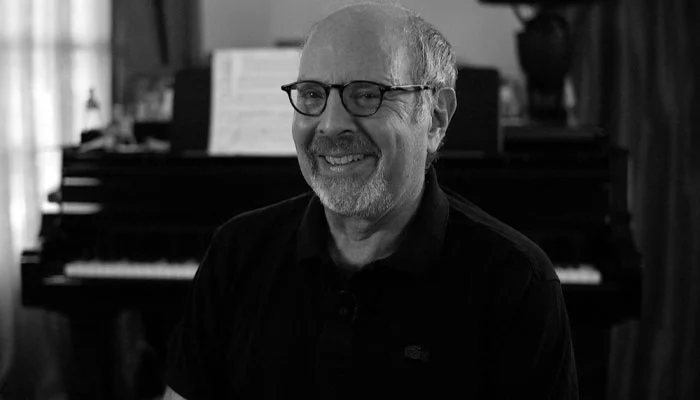
Mark Snow: The Sonic Architect of the Paranormal and Beyond
Mark Snow, born Martin Fulterman on August 26, 1946, in Brooklyn, New York, was a prolific American composer whose name became synonymous with atmospheric suspense, mystery, and emotional depth in television scoring. With a career spanning more than five decades, Snow created unforgettable musical landscapes for some of the most beloved and culturally significant shows in modern television history.
While his body of work encompassed a wide variety of genres and series, Mark Snow is best remembered for his ethereal and otherworldly theme for The X-Files, which became an iconic part of 1990s pop culture. Snow’s musical legacy, however, extends far beyond that single motif. His scores for Millennium, Smallville, Blue Bloods, One Tree Hill, and Ghost Whisperer, among many others, helped define the emotional tone and narrative atmosphere of the television age.
Early Life and Musical Beginnings
Martin Fulterman was born into a musically inclined family. His father was a professional percussionist with the New York Philharmonic, and music was a constant presence in the household. Growing up in Brooklyn, Snow was exposed to a variety of musical styles and traditions. He began playing the piano at a young age, quickly demonstrating both talent and sensitivity.
He attended the High School of Music & Art in New York, where he refined his technical skills and was introduced to the rigors of formal music education. From there, he went on to study at the prestigious Juilliard School, where he majored in composition and performance. It was during his time at Juilliard that he met his future wife, actress Glynn Daly, the sister of actor Tim Daly.
After completing his studies, Fulterman initially pursued a career as a performing artist. He was a founding member of the New York Rock & Roll Ensemble, a group that uniquely fused classical music elements with rock and roll. It was during this experimental and boundary-pushing period that Fulterman adopted the professional name Mark Snow.
Transition to Film and Television Scoring
While Snow’s early musical career was grounded in performance and experimental ensemble work, he soon found himself drawn to the world of composing for visual media. His transition to film and television scoring began in the 1970s and rapidly accelerated throughout the 1980s.
Mark Snow demonstrated an immediate aptitude for scoring, bringing together his classical training and experimental flair. His ability to compose compelling themes and atmospheres that supported and enhanced dramatic storytelling set him apart from many of his peers. His early television work included projects like Hart to Hart, Dynasty, and T.J. Hooker, where his scores added emotional weight and tension to each episode.
Unlike many composers who specialized in orchestral or synthesized styles, Snow developed a hybrid approach. He was an early adopter of electronic instruments, including the Synclavier and later digital tools that allowed him to create sweeping, layered soundscapes. His signature sound was moody, nuanced, and often tinged with melancholy—perfect for television dramas and thrillers.
The X-Files and Mainstream Recognition
Mark Snow’s career reached new heights in 1993 when he was hired by creator Chris Carter to compose the music for The X-Files. The show, which explored the paranormal, government conspiracies, and the unexplained, demanded a soundscape that would enhance the eerie tone and psychological tension.
Snow delivered with a score that fused whistling melodies, echoing effects, and minimalist rhythms. The result was haunting and unmistakable. The main theme, in particular, became iconic—its warbling whistle and synthesizer textures perfectly capturing the series’ tone of skepticism and wonder. Interestingly, the main whistle motif came about by accident while Snow was fiddling with delay effects on his keyboard, producing the now-famous “echoing ping” sound that defined the theme.
.
The X-Files theme was so compelling that it was released as a single in the United Kingdom in early 1996. It became a chart sensation, peaking at number two on the UK Singles Chart. Its popularity further elevated Snow’s status as a composer, making him one of the few television musicians to gain recognition beyond the industry.
Mark Snow remained with The X-Files for its entire original nine-season run from 1993 to 2001, and returned to score both of the show’s theatrical films: The X-Files: Fight the Future (1998) and The X-Files: I Want to Believe (2008). He was also integral to the music for the show’s two-season revival from 2016 to 2018. Throughout, his music evolved in tandem with the show’s changing themes, moving from sparse, alien textures to more emotional and cinematic orchestrations.
Millennium and Collaborations with Chris Carter
Following the success of The X-Files, Mark Snow continued his collaboration with Chris Carter on the series Millennium (1996–1999), a darker, more psychological show that followed former FBI profiler Frank Black as he investigated apocalyptic crimes and cults.
For Millennium, Snow crafted a score that was more somber and haunting than even The X-Files. The main theme was a melancholic choral piece that evoked doom and spiritual reflection. Snow’s work on Millennium further cemented his reputation as a composer who could amplify the emotional and philosophical dimensions of television storytelling.
He also scored The Lone Gunmen, a short-lived spin-off of The X-Files that aired in 2001. Though lighter in tone, Snow maintained continuity in musical style, bringing familiar motifs while adjusting the mood to suit the show’s humor and intrigue.
Expanding Horizons: Other Major Works
Mark Snow did not limit himself to science fiction or supernatural dramas. His versatility is evident in the wide range of shows for which he composed music. He contributed significantly to Smallville (2001–2011), a prequel series centered on the young Clark Kent. Here, Snow delivered heroic and emotional themes that helped shape the show’s blend of teen drama and comic book mythology.
He also composed for One Tree Hill, a series rooted in human drama and relationships. His music subtly supported the emotional arcs without overwhelming them. Similarly, on Ghost Whisperer (2005–2010), Snow’s scoring emphasized the series’ blend of mystery and sentimentality, with music that reflected grief, closure, and the supernatural.
For Blue Bloods (2010–2024), a procedural about a family of New York City police officers, Snow created grounded, emotionally driven themes that reflected family loyalty, justice, and moral conflict. His contributions lent gravitas to the show’s themes of integrity and service.
Other notable projects include Starsky & Hutch, The 2002 Twilight Zone revival, and numerous made-for-TV movies and miniseries. Mark Snow was a composer in high demand, and his reputation for quality and consistency made him a go-to figure in the industry.

Style and Approach
Mark Snow’s musical style is difficult to define in conventional terms because he was continually evolving. He moved fluidly between electronic and orchestral textures, minimalism and romanticism, ambiguity and clarity. What united his work was an emotional honesty and a sensitivity to character and narrative.
His use of subtle motifs, ambient textures, and rhythmic pulses became trademarks. He understood the power of silence and restraint, often allowing his music to suggest rather than state, to whisper rather than scream.
Snow’s experience as a performer, combined with his classical training, enabled him to write complex, layered scores while maintaining accessibility. He frequently spoke about the importance of writing music that supported the story without drawing attention to itself—a philosophy that helped make his scores so effective.
Awards and Recognition
While Mark Snow never courted the spotlight, his work did not go unrecognized. He received multiple ASCAP and BMI awards for his contributions to television music, and The X-Files theme earned him Grammy nominations and worldwide acclaim. He was nominated for six Emmy Awards during his career and won several honors for outstanding music direction and composition.
Beyond awards, Snow’s influence can be felt in the work of a new generation of composers who cite him as an inspiration. His work helped elevate the importance of music in television, treating TV scores with the same care and seriousness as film scores.
Personal Life and Legacy
Mark Snow remained married to Glynn Daly for over 50 years. They lived a relatively private life away from the Hollywood limelight, splitting time between New York and California. Snow was known for his warmth, humility, and dedication to his craft. He also mentored several younger composers, advocating for more appreciation of music in television production.
Mark Snow died on July 4, 2025, at the age of 78. His death marked the end of a storied career that spanned generations and genres. Yet his legacy lives on in the haunting whistle of The X-Files theme, the emotional undercurrents of Smallville, the moral gravity of Blue Bloods, and the quiet mysteries of Ghost Whisperer.
For fans of television, Snow’s music was more than background—it was integral to how stories were felt and remembered. His compositions have become timeless, echoing in the minds of audiences and resonating with emotional clarity long after the shows themselves have ended.
Conclusion
Mark Snow was more than a television composer; he was a storyteller in his own right. Through his music, he helped shape the emotional architecture of television’s golden age, crafting scores that were as memorable as the characters and narratives they accompanied.
His work on The X-Files alone would have secured his place in music history. But Snow never rested on that single success. Instead, he continued composing, evolving, and enriching the medium for decades, contributing to some of the most iconic and emotionally resonant series in television history.
In a world saturated with sound, Mark Snow knew when to be bold, when to be subtle, and when to let the silence speak. His music invited us to believe, to feel, and to wonder—and in doing so, he left an indelible mark on the world of entertainment.
Check out Mark Snow on Amazon by clicking here.
If you found this interesting please share it with your friends and family, and check out some of our other articles on Musicians who Died in 2025.
.

